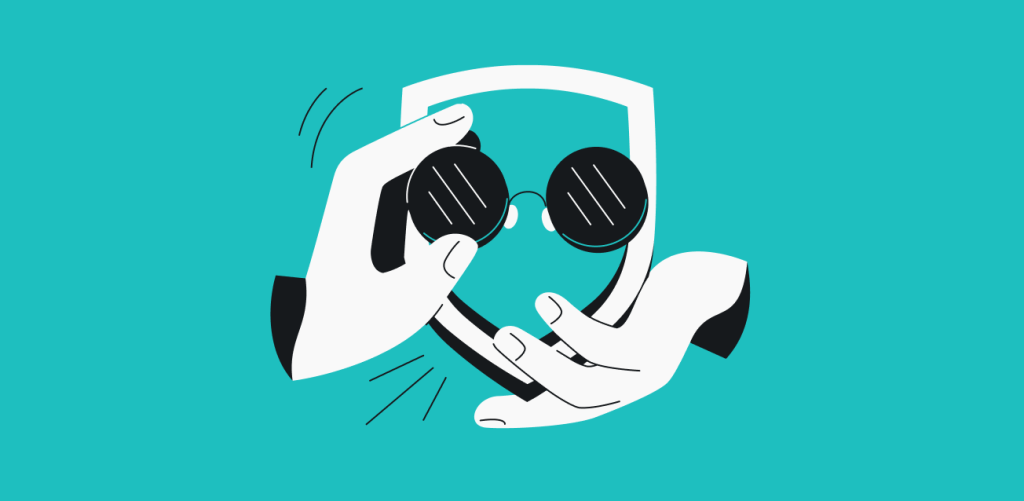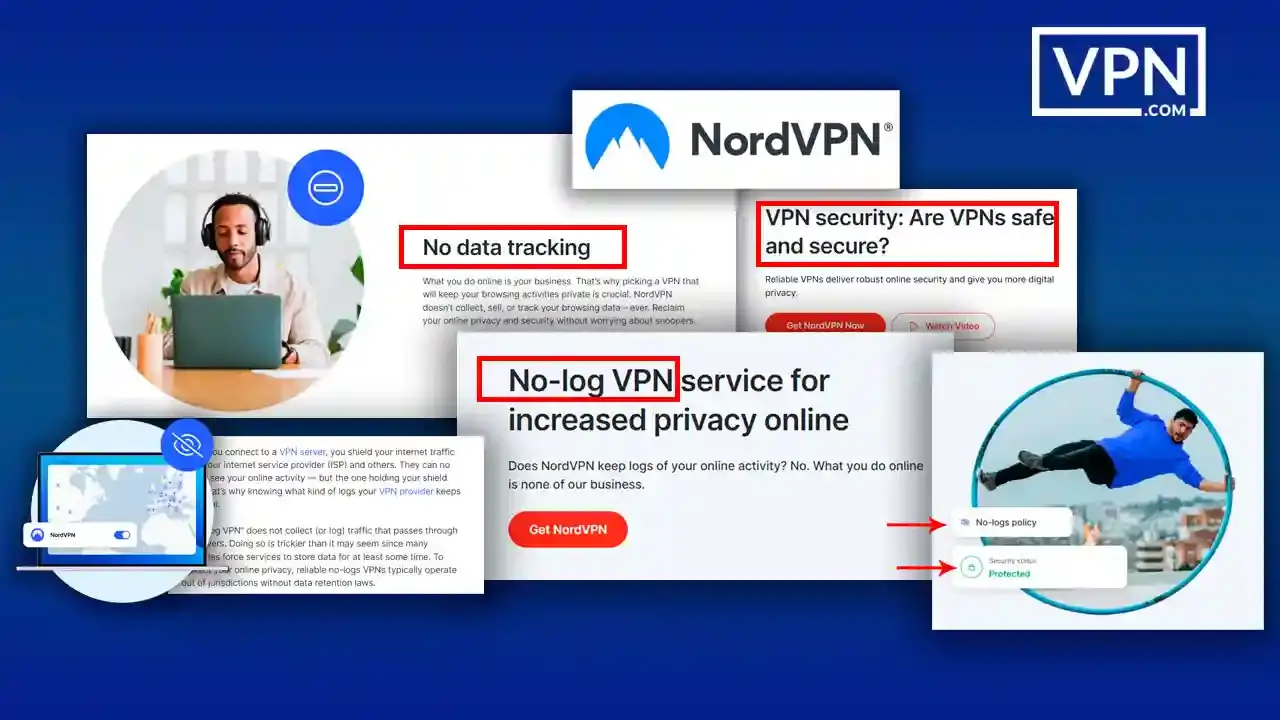Finding the best VPN for privacy can be overwhelming. There are many options.
Each VPN claims to offer top-notch security. But how do you know which one truly delivers? In today’s digital age, protecting your online privacy is crucial. With hackers and data breaches on the rise, using a reliable VPN is essential.
A VPN, or Virtual Private Network, encrypts your internet connection, hiding your data from prying eyes. But not all VPNs are created equal. Some may log your activities, while others may not have strong encryption. This blog post will guide you through the best VPNs for privacy. We will explore their features, security measures, and what makes them stand out. By the end, you’ll know which VPNs can truly safeguard your online privacy.
Overviews of Contents
ToggleIntroduction To Vpn Privacy
In today’s digital age, online privacy has become a major concern. With the rise of cyber threats, protecting your personal data is more important than ever. This is where Virtual Private Networks (VPNs) come into play. VPNs provide a secure way to browse the internet while keeping your information safe from prying eyes.
Importance Of Online Privacy
Online privacy is crucial for several reasons:
- Prevent Identity Theft: Protect your personal information from hackers.
- Secure Financial Transactions: Keep your bank details safe.
- Maintain Confidentiality: Safeguard sensitive communications.
Without proper privacy, your data can be exploited. This can lead to financial loss or personal harm. Thus, ensuring your online activities are private is essential.
Discover more interesting content on VPN by reading this post. The Best Free VPNs for Torrenting: Secure and Fast Options
How Vpns Enhance Security
VPNs enhance security in multiple ways:
- Encrypt Data: VPNs encrypt your internet traffic. This makes it unreadable to anyone intercepting it.
- Hide IP Address: VPNs mask your real IP address. This prevents websites from tracking your location.
- Secure Public Wi-Fi: VPNs protect you on public Wi-Fi networks. This stops hackers from accessing your data.
Additionally, VPNs help you bypass geo-restrictions. This allows you to access content that is not available in your region. By using a VPN, you can browse the internet freely and safely.
| Feature | Benefit |
|---|---|
| Data Encryption | Prevents data theft |
| IP Masking | Maintains anonymity |
| Secure Public Wi-Fi | Stops hackers |
In summary, VPNs are vital tools for online privacy. They encrypt your data, hide your IP address, and secure your connection on public networks. This ensures that your online activities remain private and secure.

Credit: surfshark.com
Choosing The Right Vpn
Choosing the right VPN can be a challenging task. There are many options available, each with different features and benefits. Knowing what to look for can help you make an informed decision. This guide will help you understand what to consider when selecting a VPN.
Key Features To Look For
When choosing a VPN, certain features are vital. Encryption is one of them. A good VPN uses strong encryption to protect your data. This ensures that your online activities are private.
Another key feature is a no-logs policy. This means the VPN provider does not keep records of your online activities. This is crucial for maintaining your privacy.
Server locations also matter. The more server locations a VPN has, the better. This allows you to access content from different regions easily.
Lastly, consider the VPN’s speed. A good VPN should not slow down your internet connection significantly. Check for reviews to find out about the VPN’s performance.
Discover more interesting content on VPN by reading this post. Best Vpn for Japan: Unlock Fast, Secure, and Private Browsing
Reputable Vpn Providers
There are many VPN providers, but not all are reliable. Some reputable providers include NordVPN, ExpressVPN, and CyberGhost. These providers are known for their strong security features and fast speeds.
NordVPN offers advanced security features. It has a strict no-logs policy and numerous server locations. ExpressVPN is known for its high-speed connections and strong encryption.
CyberGhost is user-friendly and offers excellent privacy features. These providers are trusted by many users around the world. They offer good customer support and reliable services.
Choosing one of these providers can ensure your online privacy and security.
Setting Up Your Vpn
Setting up your VPN might seem like a daunting task. But with the right guidance, it becomes a breeze. This section will walk you through the entire process. Follow these steps to ensure your VPN is set up correctly for ultimate privacy and security.
Installation Guide
Installing a VPN is usually straightforward. Here are the steps to follow:
- Choose a VPN Provider: Select a reputable VPN service. Ensure it has good privacy policies.
- Download the App: Visit the provider’s website. Download the app for your device.
- Run the Installer: Open the downloaded file. Follow the on-screen instructions.
- Create an Account: Sign up with your email. Create a strong password.
- Log In: Open the app. Enter your credentials to log in.
Explore more about VPN with this related post. Private Internet Access Vs Surfshark: Ultimate VPN Comparison
Initial Configuration Tips
After installation, you need to configure your VPN. Here are some tips:
- Choose a Server: Select a server location. Pick one close to you for better speed.
- Enable Kill Switch: This feature stops internet traffic if the VPN disconnects. It ensures your data is never exposed.
- Use Strong Protocols: Choose protocols like OpenVPN or IKEv2. They offer better security.
- Check for Leaks: Use tools to check for DNS, IP, and WebRTC leaks. Ensure your data is safe.
- Set Auto-Connect: Configure the VPN to start automatically with your device. This ensures you are always protected.
Following these steps and tips, you can set up your VPN easily. Enjoy private and secure browsing!
Vpn Protocols Explained
Understanding VPN protocols is key to choosing the right VPN for privacy. VPN protocols are the rules and processes that VPNs use to ensure data transfer security. Different protocols offer varying levels of speed, security, and performance.
Common Protocols
Several VPN protocols are widely used today. Each has its strengths and weaknesses.
PPTP (Point-to-Point Tunneling Protocol) is one of the oldest. It offers fast speeds but weaker security. L2TP/IPsec (Layer 2 Tunneling Protocol with Internet Protocol Security) provides better security. But it can be slower.
OpenVPN is popular for its balance of speed and security. It uses open-source technology and is highly configurable. IKEv2/IPsec (Internet Key Exchange version 2) is another strong option. It’s known for its speed and stability, especially on mobile networks.
Dive deeper into VPN by checking out this article. Nordvpn Vs Expressvpn: Which VPN Reigns Supreme in 2025?
Best Protocols For Privacy
For the best privacy, choose protocols with strong encryption. OpenVPN tops the list. It is open-source, secure, and widely trusted. Its flexibility and strong encryption make it a favorite.
WireGuard is gaining popularity. It offers high speed and modern encryption methods. It’s simpler and uses fewer resources, making it efficient.
IKEv2/IPsec is also reliable for privacy. It’s fast and secure, especially good for mobile users. Its ability to reconnect quickly after a connection drop is a big plus.
Choosing the right VPN protocol depends on your privacy needs and device. Strong protocols ensure your data stays private and secure.
Maintaining Vpn Performance
Maintaining VPN performance is crucial for a smooth online experience. A well-optimized VPN ensures fast, reliable, and secure connections. This section will explore various ways to maintain and enhance VPN performance, ensuring you get the best out of your VPN service.
Speed Optimization Tips
Follow these tips to keep your VPN running at optimal speeds:
- Choose the right server: Select a server close to your physical location. This reduces latency and increases speed.
- Switch protocols: Use a faster protocol like WireGuard or OpenVPN. These offer better speed without compromising security.
- Close background apps: Shut down unnecessary apps that consume bandwidth. This frees up resources for your VPN connection.
- Update your VPN software: Ensure your VPN client is up to date. Updates often include performance improvements.
Avoiding Common Pitfalls
Be mindful of these common issues that can affect VPN performance:
- Overloaded servers: Avoid using servers with high traffic. Check the server load before connecting.
- ISP throttling: Your ISP may throttle VPN traffic. Opt for a VPN with obfuscation features to bypass throttling.
- Weak Wi-Fi signal: Ensure a strong and stable Wi-Fi connection. A weak signal can slow down your VPN.
- Device limitations: Older devices may struggle with VPN encryption. Use a modern device for better performance.
By following these tips and being aware of common pitfalls, you can maintain optimal VPN performance. This ensures a fast, secure, and enjoyable online experience.

Credit: www.privacytools.io
Vpns On Different Devices
In today’s digital age, online privacy is crucial. VPNs (Virtual Private Networks) help protect your data from prying eyes. But how do VPNs work on different devices? In this section, we will explore VPN use on smartphones, laptops, and desktops.
Using Vpns On Smartphones
Smartphones are with us all the time. They carry a lot of personal data. Using a VPN on your smartphone helps keep your information safe. It encrypts your data, making it unreadable to hackers. Many VPN apps are available for both Android and iOS.
Setting up a VPN on your smartphone is easy. Download a VPN app from the app store. Open the app and follow the instructions to connect. Once connected, your data is secure. You can browse the web without worry.
Vpns For Laptops And Desktops
VPNs are also essential for laptops and desktops. These devices often store more sensitive information. Using a VPN on your laptop or desktop can prevent data breaches. It also allows access to geo-restricted content.
To use a VPN on your laptop or desktop, choose a VPN provider. Download and install the VPN software. Open the software and follow the setup steps. Once connected, your internet traffic is encrypted. Your online activities remain private and secure.
Many VPN services offer extensions for browsers. These extensions are easy to install. They provide an extra layer of security while browsing. Remember to choose a reliable VPN provider for the best protection.
Bypassing Geo-restrictions
Bypassing geo-restrictions is one of the main benefits of using a VPN. Many websites and services limit access based on your location. This means you might not be able to access certain content. A VPN can change your IP address. This makes it appear as if you are in a different country. With a VPN, you can access content that is not available in your region.
Accessing Region-blocked Content
Many websites block users based on their location. These sites check your IP address to determine your location. A VPN can help you access these sites. It does this by masking your real IP address. You can choose an IP address from a different country. This way, you can access content that is blocked in your region.
Streaming Services With Vpn
Streaming services like Netflix and Hulu have different content libraries. These libraries vary by country. You might not be able to watch certain shows or movies in your region. A VPN can help you access these libraries. By choosing an IP address from another country, you can watch shows and movies from that country’s library. This gives you more options for streaming content.
Troubleshooting Vpn Issues
Facing VPN issues can disrupt your online privacy. Discover effective solutions to maintain the best VPN privacy and secure your connection.
Using a VPN is essential for online privacy. But, sometimes, problems occur. Understanding common issues and knowing when to seek help can save time and stress.Common Problems And Fixes
One common problem is a slow connection. This can be due to server overload. Try switching to a different server. Another issue is the VPN not connecting. Check your internet connection first. If it works, restart your device. Ensure your VPN software is updated. Sometimes, firewalls or antivirus software block VPNs. Disable them temporarily to see if this resolves the issue. VPNs can also drop connections. This happens due to unstable internet. Use a wired connection instead of Wi-Fi. Some VPNs have a kill switch feature. Enable it to avoid leaks if the VPN disconnects.When To Contact Support
Contact support if problems persist. They can provide specific solutions. If you can’t connect to any server, reach out. If your VPN shows an error code, support can help. Experiencing frequent disconnections? Support can check for server issues. If you encounter security concerns, inform support immediately. They prioritize user safety. Support teams often have live chat. Use it for quick assistance. Don’t hesitate if you have any doubts. They are there to help. “`Advanced Vpn Features
Advanced VPN features provide users with enhanced security and flexibility. These features ensure that your online activities remain private and secure. They also offer more control over your internet connection. In this section, we will explore two key advanced VPN features: Kill Switch and Split Tunneling.
Kill Switch
A Kill Switch is an essential VPN feature. It protects your privacy if your VPN connection drops. Without a Kill Switch, your real IP address could be exposed. This feature immediately blocks your internet connection when the VPN disconnects. This ensures that your data remains secure at all times.
Kill Switch is important for those who need constant privacy. It prevents accidental exposure of sensitive information. This feature is especially useful for activities like online banking or accessing restricted content.
Split Tunneling
Split Tunneling allows you to control which apps use the VPN. This means you can route some of your traffic through the VPN. Meanwhile, other traffic can go directly to the internet. This feature offers flexibility and can improve your internet speed.
For example, you can use Split Tunneling to access local sites with your regular connection. Simultaneously, you can use the VPN for secure tasks. This way, you can enjoy both security and convenience. Split Tunneling is perfect for users who need to balance privacy with everyday internet use.
Vpn And Data Privacy Laws
In today’s digital world, protecting your online privacy is crucial. A Virtual Private Network (VPN) can help safeguard your data. But understanding how data privacy laws impact VPNs is essential. These laws vary by country, affecting the level of protection you get.
Understanding Jurisdiction
Each VPN operates under the laws of the country it is based in. These laws dictate how much user data the VPN must store. Some countries have strict data retention laws. Others offer more privacy-friendly regulations.
For instance, VPNs based in the United States must comply with certain surveillance laws. They may be required to hand over user data to government agencies. In contrast, VPNs in privacy-friendly countries like Switzerland have fewer obligations to store or share user data.
Implications For Users
The jurisdiction of a VPN can directly impact your privacy. If your VPN is based in a country with strict data retention laws, your information might be less secure. You may be at risk of having your data monitored or shared.
Choosing a VPN based in a privacy-friendly country can offer better protection. These VPNs are less likely to be compelled to store or share your data. Always check where your VPN provider is based. This knowledge can help you make an informed decision about your online privacy.

Credit: www.vpn.com
Frequently Asked Questions
What Is A Vpn And How Does It Work?
A VPN, or Virtual Private Network, protects your online privacy. It encrypts your internet connection. This hides your data from prying eyes.
Why Is Vpn Privacy Important?
VPN privacy is crucial. It keeps your data safe from hackers. It also protects your online activities from surveillance.
How Do I Choose The Best Vpn For Privacy?
Look for strong encryption. Check for a no-logs policy. Ensure the VPN has good reviews for privacy.
Can A Vpn Improve My Internet Speed?
A VPN can sometimes improve speed. It does this by avoiding ISP throttling. However, it might also slow down due to encryption.
Conclusion
Choosing the best VPN for privacy helps protect your online activities. A good VPN keeps your data safe and private. It’s important to pick a VPN that fits your needs. Look for strong encryption, no-logs policies, and user-friendly apps. Remember, a reliable VPN can make browsing safer and more secure.
Start your search today and enjoy a safer internet experience.




